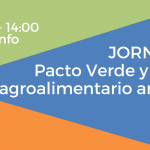Cities are expected to bear the brunt of climate change and face increases in the intensity and occurrence of heatwaves, heavy rain, floods and other extreme weather events. EU researchers have developed groundbreaking solutions to deal with these disaster scenarios.
It is estimated that around 66 % of the world population will be living in urban areas by 2050. Aimed at aiding cities to cope with the effects of climate change, the EU-funded RESCCUE project set out to help urban areas around the world become more resilient. “More precisely, RESCCUE has provided innovative models and tools to improve the ability of cities to withstand and recover quickly from multiple climate-related shocks and stresses and maintain continuity of services,” highlights Marc Velasco, project coordinator.
The road towards resilience
With a focus on the urban water cycle and floods, the project’s key achievements are diverse. One of these is the generation of climate change scenarios for the three RESCCUE cities – Barcelona, Bristol and Lisbon – based on different climate variables such as temperature and rainfall. “These cities have become a testing platform for the cutting-edge solutions developed in RESCCUE,” highlights Velasco.
Additionally, sectorial models were created that provide deep knowledge on the response of urban services during extreme climate conditions, like heavy storms. “We also presented and tested different methodologies to develop a multiple hazard assessment for these services and their infrastructures,” Velasco adds.
Adaptation strategies, formed through sets of measures, can help cities adjust to climate impacts and increase their resilience. There are, however, many measures to choose from, which becomes challenging when urgent action is required. Assisting cities to prioritise adaptation measures, RESCCUE proposed a methodology that can be adapted to a variety of cities.
This methodology was tested in Barcelona, Bristol and Lisbon. “Based on the existing climate plans of the cities and workshops with stakeholders, the project proposed 4 strategies and 27 measures for Barcelona, 3 strategies and 14 measures for Bristol and 6 strategies and 24 measures for Lisbon,” reports Velasco.
Focusing on the urban water cycle and bringing together the project’s work, Resilience Action Plans were also developed for RESCCUE’s three cities. These action plans provide a roadmap towards climate change resilience. “They are thematic plans contributing to their global planning. The urban services addressed in these plans were water supply, wastewater, storm water, waste, electric energy and mobility,” explains Velasco.
All RESCCUE’s results, the main tools, models, data sets and methodologies are showcased in an end user, city manager and urban service operator oriented toolkit. These solutions are ready to be deployed to different cities with different climate change pressures.
Continuing the work towards resilient cities
“What RESCCUE has produced is only the beginning. The work initiated will continue to move forward and cities will become more prepared for the coming challenges,” notes Velasco. The project’s methodologies and tools are expected to make a significant impact on the urban resilience sector in Europe, as they pave the way for city resilience assessment, planning and management in different urban environments.
Discussing what might come next, Velasco concludes: “Multi-hazards and impact models should be used to improve planning and operation of main urban services to face climate change effects. Synergies with ongoing and future projects and experiences related to short- and mid-term early warning systems, including seasonal prediction, and long-term projections could help to cover this gap.”







Leave a Reply